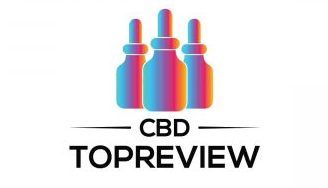29 June 2023. Authored by Ethan Adams. Expected time required for a glance: 5 minutes.
Introduction to Delta-8 Thc and Its Effects on Breastfeeding
Delta-8 THC is a compound found in cannabis plants that has been gaining popularity in recent years. It offers many of the same benefits as delta-9 THC (the compound that gets you “high”), but with less intense psychoactive effects. For breastfeeding mothers, concerns have arisen as to whether delta-8 THC can be passed on to their babies through breastmilk and what the effects might be.
While research on the topic is limited, some studies suggest that THC (including delta-8) can indeed be passed on to babies through breastmilk, potentially affecting their development and behavior. It’s important for nursing mothers to be aware of the risks and make an informed decision about whether to use delta-8 THC products while breastfeeding.
Factors That Can Affect How Long Delta-8 Stays in Breastmilk
The length of time that delta-8 THC stays in breastmilk can vary greatly depending on a number of factors. One factor is the frequency and amount of delta-8 THC use. The more often a mother uses the compound and the larger the dose, the longer it is likely to stay in her breastmilk. Another factor is the mother’s metabolism. Some people metabolize THC more quickly than others, which can affect how long it stays in their breastmilk.
Other factors that can affect how long delta-8 THC stays in breastmilk include the potency of the product being used, the mother’s body fat percentage, and the time of day that the product is used. It’s important for nursing mothers to be aware of these factors and to discuss any delta-8 THC use with their healthcare provider to ensure the safety of their baby.
Research and Studies on Delta-8 and Breastfeeding
Although delta-8 THC is a less potent form of THC, nursing mothers should still exercise caution when using it. There is little research on the effects of delta-8 THC on breastmilk, but studies suggest that THC can be transmitted through breastmilk, leading to potential developmental and behavioral issues in babies. While it’s understandable that breastfeeding mothers may wish to use delta-8 THC for various reasons, it’s important to consider the possible risks to their newborns.
Research indicates that delta-8 THC can stay in a breastfeeding mother’s system for up to 48 hours. This means that it can be transferred to the baby through breastmilk during that time. Given the limited information available about delta-8 THC and breastfeeding, new mothers would be wise to err on the side of caution and avoid THC products until they have finished nursing. It’s always better to be safe than sorry, especially when caring for a newborn.
Learn more about how CBD affects your furry friends
Recommendations for Nursing Mothers Who Have Used Delta-8
If you are a nursing mother who has used delta-8 THC, there are steps you can take to minimize any potential risks to your baby. First and foremost, it’s important to wait at least 48 hours after using delta-8 THC before breastfeeding. This allows enough time for the THC to work its way out of your system and reduces the likelihood of it being transferred to your baby through breastmilk.
Another option is to pump and dump your breastmilk for 48 hours after using delta-8 THC. This means that you would pump your milk and then discard it instead of feeding it to your baby. While this may be inconvenient, it’s a way to avoid exposing your baby to any THC that might still be in your breastmilk.
Have you been wondering how to change the city on your weather app?
Alternative Options for Managing Symptoms While Breastfeeding
For nursing mothers who are looking for alternative options to manage symptoms while breastfeeding, there are several non-THC cannabis compounds that may be worth exploring. CBD, for example, is a non-psychoactive compound that has been shown to have anti-anxiety, anti-inflammatory, and pain-relieving properties. It’s important to note, however, that more research is needed to fully understand the effects of CBD on breastmilk and breastfed babies.
In addition to CBD, many nursing mothers have found relief from symptoms by using other natural remedies such as acupuncture, massage, and meditation. It’s always important for nursing mothers to discuss any new treatments or therapies with their healthcare provider before trying them.
can cbd cause heart palpitations
Conclusion and Resources for Further Information
While there is still much to learn about the effects of delta-8 THC on breastfeeding, it’s clear that nursing mothers need to exercise caution when using these products. With limited research and conflicting reports, it’s best to err on the side of caution and avoid using delta-8 THC while breastfeeding.
If you do decide to use delta-8 THC products while breastfeeding, it’s important to speak with your healthcare provider and closely monitor your baby for any adverse effects. You may also want to consider pumping and dumping your breastmilk for a period of time after using the product to ensure that it is no longer present in your milk.
For more information on delta-8 THC and breastfeeding, as well as alternative options for managing symptoms, please visit https://cbd.topreview.com/how-long-does-delta-8-stay-in-breastmilk-a-comprehensive-guide-for-nursing-mothers/.
👍👩⚕️💊💜
Ethan Adams is a journalist from Washington, D.C. He is passionate about writing about science, technology, and environmental issues.









